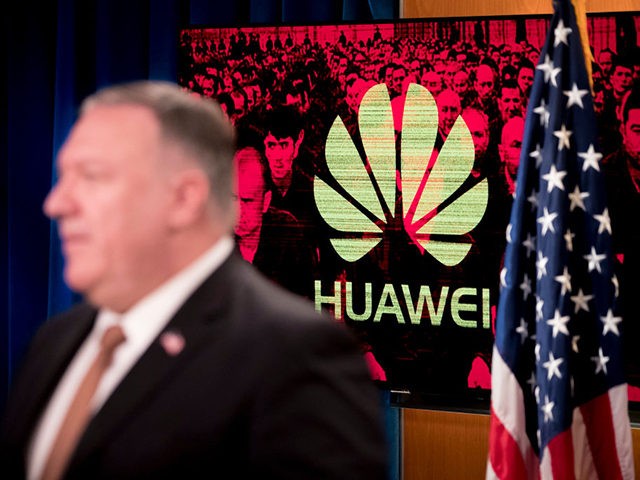Voice of America News reported on Saturday that Chinese smartphone maker Huawei is running out of the processor chips it needs to build its top phones because of U.S. sanctions.
The big problem facing Huawei is the loss of American manufacturing technology needed to produce Kirin computer chips, which were custom-designed by Huawei engineers. Huawei cannot produce the chips without the blocked technology and has no alternative source for obtaining them.
“This is a very big loss for us,” Huawei executive Richard Yu said at an industry conference on Friday. “Unfortunately, in the second round of U.S. sanctions, our chip producers only accepted orders until May 15. Production will close on September 15. This year may be the last generation of Huawei Kirin high-end chips.”
Yu implied Huawei was having trouble sourcing other materials it needs for various products, saying the company has “no chips and no supply.”
AFP reported that Huawei’s source for the latest generation of Kirin processors, the Kirin 9000, is Taiwan Semiconductor Manufacturing Co. (TSMC). TSMC stopped taking orders from Huawei in May because of U.S. sanctions, as Yu said at the conference on Friday.
AFP noted the chip shortage comes after the United Kingdom joined Australia and Japan in blocking Huawei from its 5G network rollout, and several European telecom companies have chosen not to use Huawei as a phone supplier.
Huawei’s upcoming Mate 40 phone, slated for release before the end of 2020, will evidently be the last model that can use Kirin processors. Yu said Mate 40 supplies are likely to be limited as the last of the Kirin inventory is used up.
“Huawei spent over a decade exploring chipsets, going from ‘severely behind’ to ‘very behind’ to ‘slightly behind’ to ‘finally caught up’ to ‘leading’ to now being banned,” he complained.
“We made huge R&D investments and went through a difficult journey. Unfortunately, when it came to semiconductor production, Huawei didn’t participate in investing in heavy assets in this field; we only did chip design but skipped chip production,” Yu said to explain why the company grew so dependent on chips from a single offshore supplier.
Android Authority called the end of the Kirin phones “shocking” but also “inevitable” given U.S. sanctions. The effect on Huawei’s business model could be profound, since it will also have to discontinue other products that rely upon Kirin chipsets.
Furthermore, there are few suppliers willing or able to provide replacement chips of comparable power; the best short-term option appears to be a company called MediaTek that Huawei already does a good deal of business with, but MediaTek’s best chip might not be a smooth replacement for the lost Kirin hardware. Even within the Chinese market, the capabilities provided by Kirin chips at very reasonable prices were strong selling points for Huawei, prominently including the powerful image processing capabilities the Kirin chips gave to Huawei phone cameras.

COMMENTS
Please let us know if you're having issues with commenting.